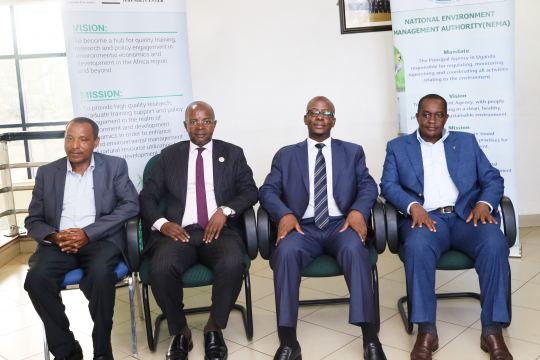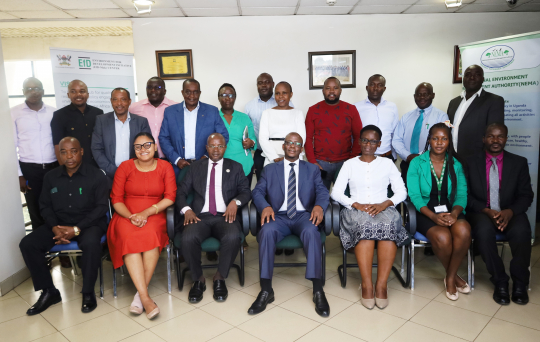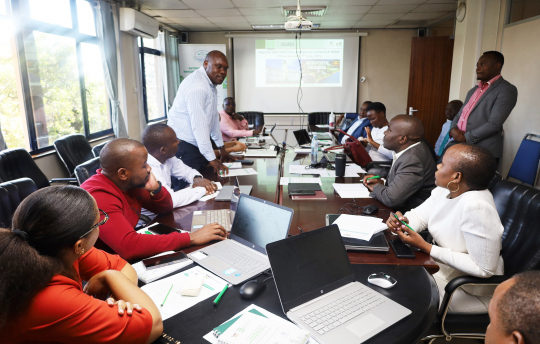Lake Victoria is a transboundary natural resource, underpinning the economies and livelihoods of the population of Burundi, Kenya, Tanzania, Rwanda, and Uganda. However, the lake and its surrounding areas are facing many problems including rising lake water levels, moving islands, encroachment, and ecological and biodiversity degradation which may lead to the extinction of several fish species. Researchers and civil servants met at EfD Uganda to address those problems.
The lake supplies fresh water, fishing, waste repository, food, energy, water for drinking, irrigation, industry, tourism, and cross-border transportation.
Unsustainable use persists
East African governments have signed regional and international treaties targeted at ensuring the sustainable use of natural resources within the lake basin. Whereas international treaties have been included in national legislation and institutions and agencies have been established to safeguard fragile ecosystems, unstainable use and management of the lake basin persist. This is partly attributed to political interferences, ineffective monitoring, and poor implementation of the existing laws on the management and utilization of the lake.
Because of the unstainable management of the lake, countries have witnessed unprecedented consequences such as floods and mudslides and extreme and unpredictable weather changes. Dams could not generate electricity due to very low water levels and many other livelihoods. Social and economic impacts include loss of lives.
East African EfD centers meet in Uganda to discuss LVB issues
The Environment for Development Initiative (EfD) Makerere University Uganda organized a one-day high-level policy dialogue on changes in Lake Victoria’s hydrology, water quality, and livelihoods. It was hosted by Uganda’s environment watchdog – the National Environment Management Authority (NEMA) at its head office in Kampala, Uganda.
The dialogue was attended by the three East African EfD centers; Richard Mulwa (EfD Kenya), Onesmo Selejio (EfD Tanzania), and Edward Bbaale, for EfD Uganda.
Each country was also represented by delegates from different agencies. Representatives from Kenya included the Kenya Marine and Fisheries Research Institute (KMFRI), the National Environment Management Authority (NEMA) of Kenya, the Lake Basin Development Authority (LBDA) of Kenya, and academia from the University of Nairobi.
Delegates from Tanzania spanned from the Ministry of Livestock and Fisheries, Lake Victoria Basin, Mwanza, and academicians from the Adhi University and University of Dar es Salaam.
The Ugandan delegates came from agencies including the Ministry of Finance, Planning and Economic Development (MoFPED), the National Planning Authority (NPA), the Ministry of Water and Environment (MoWE), the Ministry of Agriculture, Animal Industry and Fisheries (MAAIF), National Environment Management Authority (NEMA), Environmental Police Protection Unit (EPPU), and academicians from Makerere University.
The Executive Director of NEMA Dr. Akankwasah Birerega was the host of the dialogue. Each country presented an in-depth analysis of the issues pertinent to its areas of jurisdiction and later went into plenary discussion where short, mid, and long-term interventions were proposed.
By: Jane Anyango, EfD Uganda


